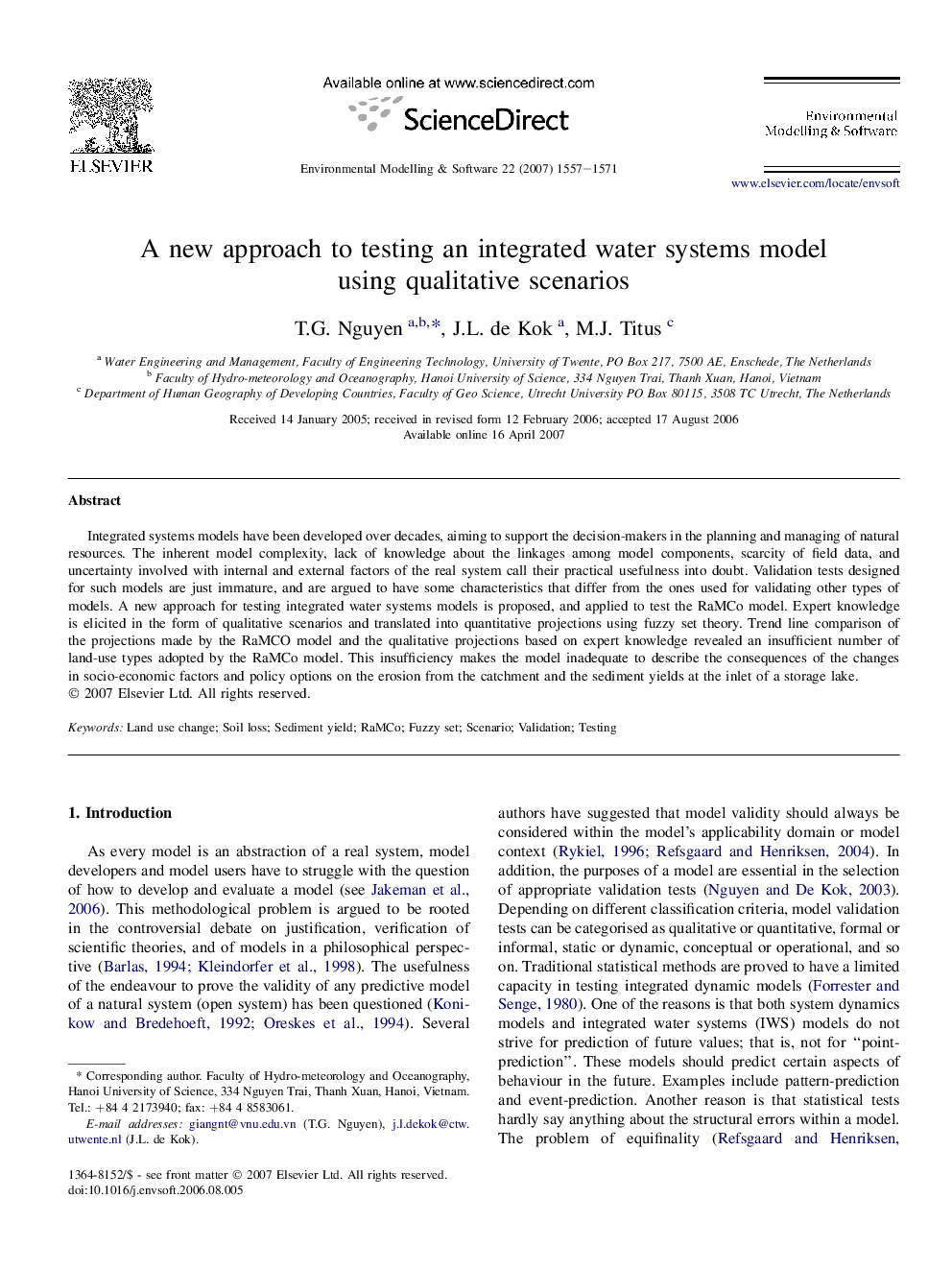| Article ID | Journal | Published Year | Pages | File Type |
|---|---|---|---|---|
| 570449 | Environmental Modelling & Software | 2007 | 15 Pages |
Integrated systems models have been developed over decades, aiming to support the decision-makers in the planning and managing of natural resources. The inherent model complexity, lack of knowledge about the linkages among model components, scarcity of field data, and uncertainty involved with internal and external factors of the real system call their practical usefulness into doubt. Validation tests designed for such models are just immature, and are argued to have some characteristics that differ from the ones used for validating other types of models. A new approach for testing integrated water systems models is proposed, and applied to test the RaMCo model. Expert knowledge is elicited in the form of qualitative scenarios and translated into quantitative projections using fuzzy set theory. Trend line comparison of the projections made by the RaMCO model and the qualitative projections based on expert knowledge revealed an insufficient number of land-use types adopted by the RaMCo model. This insufficiency makes the model inadequate to describe the consequences of the changes in socio-economic factors and policy options on the erosion from the catchment and the sediment yields at the inlet of a storage lake.
